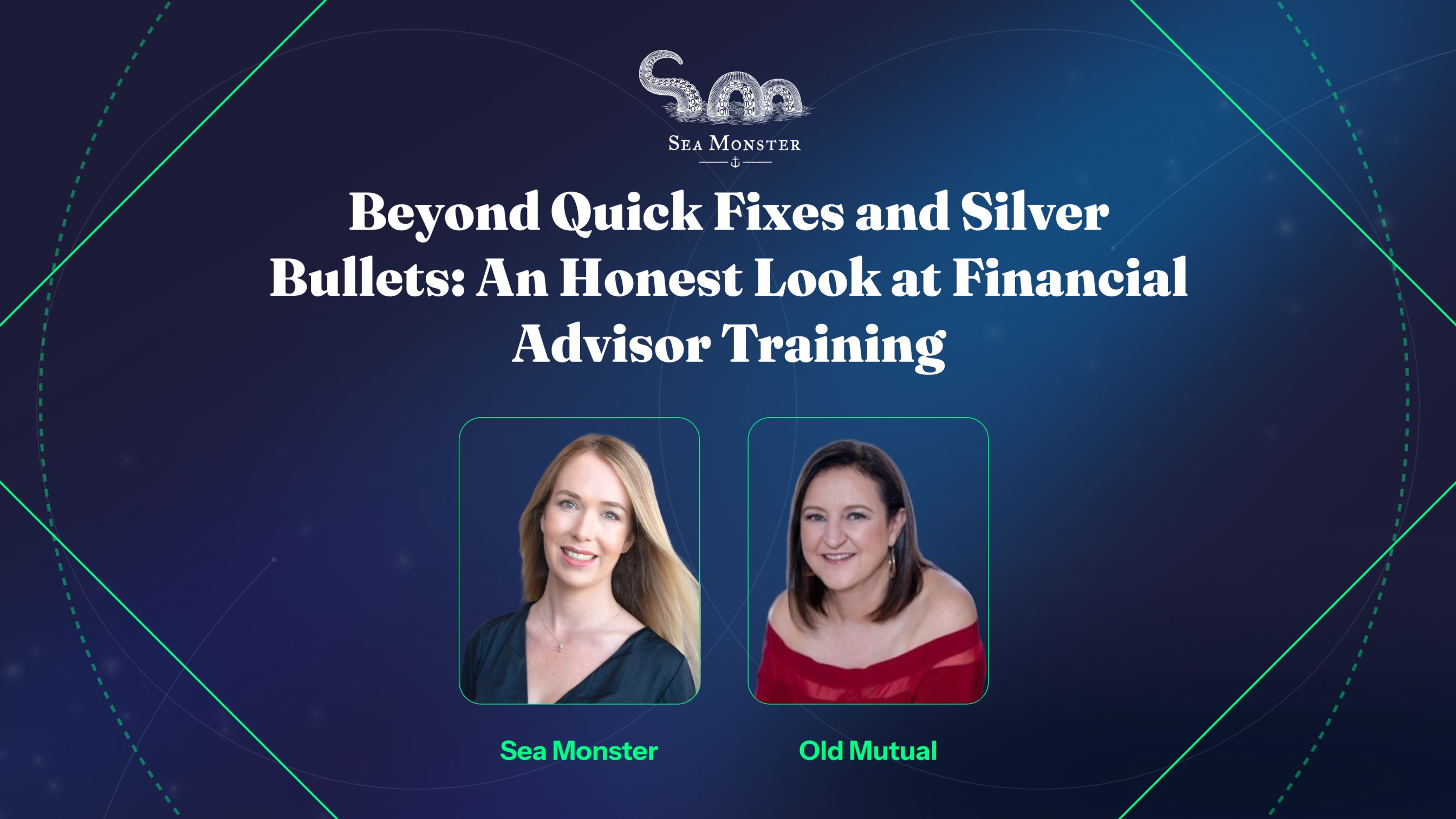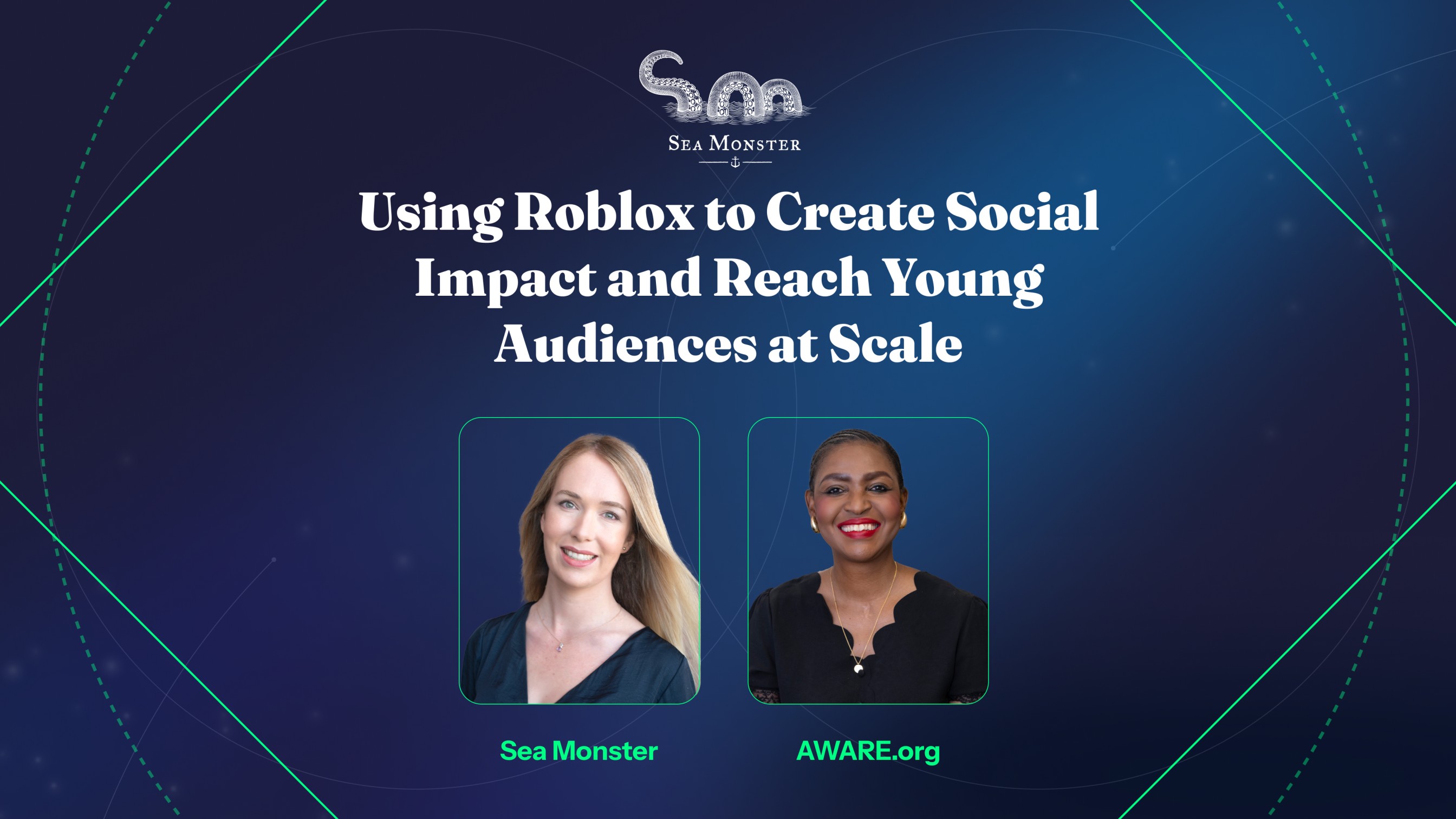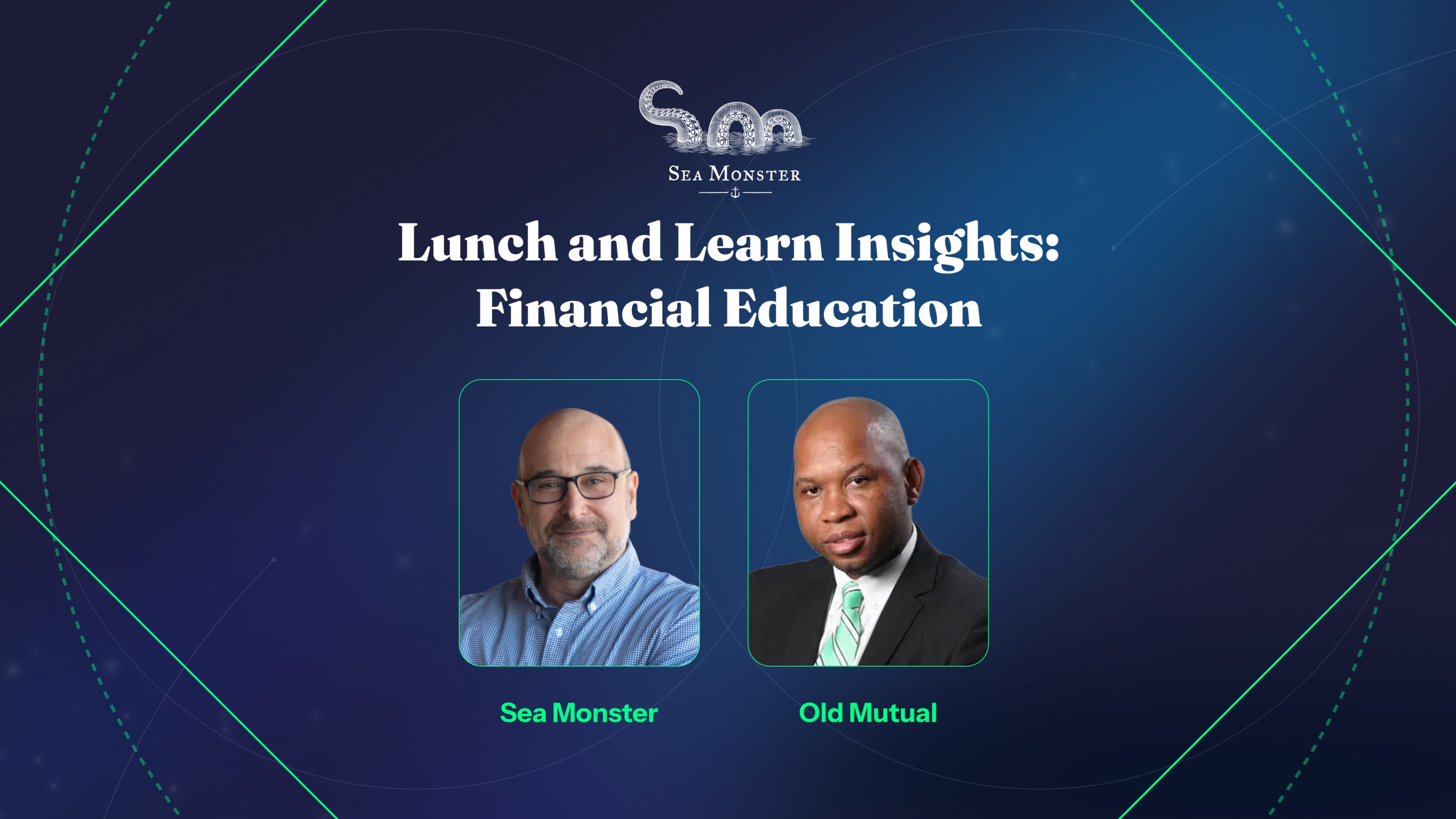South Africa's financial services industry faces a stark reality: recruit 1,000 new advisors and only 200 will survive their first year. That's an 80% failure rate representing more than business inefficiency – it's a lost opportunity for building the financially literate nation we need. In September, we hosted a lunch and learn with Marguerite Gordon, Senior Learning Manager at Old Mutual, revealing why traditional training fails and what actually works. Her insights on storytelling, strategic gamification, and the irreplaceable human element challenge everything we think we know about preparing people for careers requiring both technical expertise and deep human connection.
Behind the statistics
Our reality in South Africa's financial services industry is that you might recruit a thousand new advisors and have only 200 left by the end of the year. That's an 80% failure rate in the first year alone.
"The volume of knowledge and the level of skill that people need in order to succeed in this field from the outset and ongoing are enormous," explains Marguerite Gordon, Senior Learning Manager of Personal Finance at Old Mutual Limited. "The learning curve for anyone coming into our business, irrespective of their background, is often truly steep."
This isn't just a training problem. It's a complex web of challenges that reveals something deeper about the nature of financial advice and what it takes to succeed in helping South Africans with their money.
In a country where there's such urgent need for good financial advice and trusted relationships that can assist people with their finances, losing 8 out of every 10 new advisors represents more than just business inefficiency – it's a lost opportunity for nation building.
The life experience gap
This challenge runs deeper than technical knowledge. Many new financial advisors are young people who simply haven't lived through the financial experiences they're expected to help others navigate.
"If we look at customer expectations, the customer of today is not the customer of 20 years ago," Gordon observes. "To place somebody in a position where they can engage meaningfully with somebody with an appropriate level of confidence, without necessarily having experienced things firsthand themselves, is really challenging."
Consider the complexity: you're asking someone who may never have bought property to advise others on mortgage protection. Someone who hasn't experienced the financial impact of losing a parent to explain life insurance. Someone who's never built an investment portfolio to guide others toward retirement planning.
"I think for anyone in the room who has ever purchased a property, it doesn't matter how much advice you get from friends, family, or anyone else, or how many articles you read. When you walk that journey, there's always a slightly sick feeling that you feel along the way as you understand what the implications of everything are in practice."
The attention span crisis
Critical to the success of advisors in this space is technical excellence as well as, according to Gordan, "a burning desire in that person, or some truly compelling reason for them to be successful."
But even when advisors have the right motivation and receive quality training, there's another challenge: the fact that the fundamental way people learn is rapidly changing.
"About 15 years ago, I was an avid TED talker, and I could watch 3 20-minute TED Talks back-to-back without blinking. Now, I struggle to watch something with focus that lasts longer than 8 minutes," Gordon reflects.
This decline in attention span affects both advisors in training and the clients they serve. Training partners report they no longer run formal face-to-face sessions beyond 2 PM because people simply can't focus for full-day sessions anymore.
"The need to switch things up and transition from one medium to another, to do that regularly is vital, and sometimes quite exhausting," Gordon explains. "The need to continually push the envelope and pursue the kind of novelty that is necessary to hold people's attention is really important."
The storytelling solution
Despite technological advances, one ancient learning method remains remarkably effective: storytelling.
Gordon shares a perfect example from her own advisor days. A marketing colleague needed to teach the critical rule that preservation fund withdrawals are limited to once per fund. Instead of presenting dry regulatory facts, she told a story about fraud involving a high net worth client, fake signatures, and a clever trap that caught the perpetrator.
"That is just a story, and I don't know how long it's taken me to tell it, kind of 3 or 4 minutes, but I will never ever forget that you may only do one withdrawal from a preservation fund once it sits there, and it's that story that has made that technical point a permanent fixture for me."
The age-old principle of people sitting, sharing stories around a literal fire, holds true today. Stories are how we understand the world.. Through stories, we can help raise the level of emotion and interest about a subject, and therefore increase the level of retention around its message.
Gamification done right
Technology offers new ways to bring storytelling to life and to make learning engaging, but Gordon approaches gamification with characteristic caution: "I approach gamification with the same caution with which I approach everything. I think it's a fantastic thing if it's used appropriately."
Her team created a "Who Wants to be a Millionaire" style game with a two-pot retirement system twist. The game works because it serves multiple purposes: it can be used in masterclasses, with audience participation, or for private self-testing.
The key insight: gamification must be meaningful, not just fun. "I break out in hives at the notion of gamification for the sake of it. It needs to be meaningful."
The human element remains
Looking toward the future, Gordon believes technology will enhance learning but won't replace human expertise entirely.
"There are certain subject matter experts who live so deeply and embody what it is that they teach that I haven't experienced technology being able yet to do it better, and I suspect that those things will remain."
She worries about the cost of over-reliance on technology: "If the cost is that people carry diminishing levels of explicit knowledge that they can produce at any given time, then I think that's a cost which is too high."
For advisors, this is particularly critical. "For an advisor who has no in-depth insight into financial planning, to sit with a customer who might come with a plan generated by ChatGPT, and present a version of an own plan which looks different, in the absence of the ability to say, the reason why the output is different is this, based on own knowledge... that's going to put people in a terrible situation."
What's next?
The 80% failure rate among new financial advisors reflects a complex challenge that can't be solved by training alone. Success requires:
- Adaptive learning approaches: Multiple modalities that account for shortened attention spans
- Storytelling mastery: The ability to make complex concepts emotionally resonant
- Meaningful technology use: Games and tools that serve clear learning objectives
- Deep expertise: Knowledge that goes beyond what AI can provide on demand
Most importantly, it requires a recognition that "people are critically important" in a field where "you can't hold chatbots accountable" for life-changing financial advice.
The challenge facing the industry isn't just about creating better training programs – it's about fundamentally rethinking how we prepare people for careers that require both technical expertise and deep human connection.
The solution lies not in choosing between technology and human connection, but in finding the sweet spot where both amplify each other. Where games create safe spaces to practice difficult conversations. Where stories make complex regulations memorable. Where personal motivation meets professional competence.
The advisors who make it through that first year and build successful careers will be those who understand that in a world of increasing automation, their human judgment, empathy, and lived experience become more valuable, not less. They'll be the ones who can sit across from a client in their darkest financial moment and provide not just technical solutions, but genuine understanding and hope.
In a country that desperately needs trusted financial guidance, developing these kinds of advisors isn't just good business – it's nation building, one relationship at a time.
To watch the recording of the session, check it out on YouTube here.
Are you looking for innovative approaches to learning and development that combine storytelling, technology, and human connection? Get in touch with Sea Monster to explore how we can help transform your training programs.


.svg)
.svg)






.gif)
